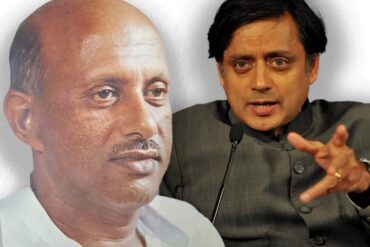For the much-harassed Hindus and Muslims in Assam suspected of being illegal Bangladeshi settlers, there is now a glimmer of hope: in recent days, authorities have released 20 people held in endless detention long after serving their 3 year sentences, from special camps in Goalpara and Tezpur.
Altogether 56 people are to be freed, out of 140 applicants. Most have been treated as prisoners for life, having served out their terms. There was no relief for the rest because their submissions were ‘not in order,’ according to local media reports. However, bowing to the twin pressures of international opinion and an increasingly hostile press, state officials have offered to help the barely literate poor prisoners unable to write out a legible prayer seeking their overdue release.
The sudden surge of official mercies comes in the wake of the recent death of two 60-plus men in jail. Both men suffered from acute mental and physical problems. Civil rights groups allege that even during their last hours they did not get much medical attention, whether in prison or when they were shifted to civil hospitals.
One of them, Dulal Chandra Paul died on the outer balcony of a ward, the facility being too overcrowded to accommodate any more ‘death row’ arrivals. His relatives accused the doctors of neglecting him, but their indignation went largely unshared among common people. It is common knowledge that for a suspected illegal immigrant in the Northeast, no amount of official neglect or bad behavior generates much social concern.
It must not be assumed that their problems have finally ended for those lucky to be released. Among people set free are Hindu and Muslim men and women from Nagaon, Hojai, Dalgaon and other areas. True, they will not be behind bars, but their legal status and future remain as dark and undefined as ever. It is not clear whether they will be treated as normal citizens enjoying their full complement of civil rights. There is no immediate move to push them back into Bangladesh, but this may well define the extent of their hard–earned freedom. Whether they will be herded into ‘special camps’ again as a stateless group remains unclear, in the context of bigger jails being built in Assam. As one Human Rights activist put it, “These people may have reached a frying pan, out of the fire.”
This is one of the many bitter legacies that the National Register of Citizens (NRC) upgradation exercise in Assam, carried out with much fanfare costing Rs 1600 crore over five years, will leave behind. Intriguingly, no one knows for sure in the post-NRC survey phase, if the exercise is over or not. There has been no official announcement. The Union Home Minister Amit Shah, the most enthusiastic architect of the exercise, is yet to speak the last word.
However, outgoing Chief Co-ordinator Prateek Hajela, a civilian from Madhya Pradesh, has left on another assignment somewhat hurriedly. There are several stories circulating about his precipitate departure. Some people accuse him of not doing enough to prevent cases of bribe- taking and corruption among his team of officials. Others say he could be targeted by grudge-bearing extremists angered by their omission from the final sanitized citizens’ list. The first suggestion may be malicious and unfounded. Supreme Court Chief Justice Ranjan Gogoi, who gave Hajela a free hand, in accepting or rejecting peoples’ claims as he saw fit, making or breaking the destinies of individuals and families, darkly hinted that there was a reason for his departure without elaborating.
In his final reaction to the media, Hajela put on a brave face claiming the NRC operation had been carried out in the best possible manner and was quite accurate in identifying foreigners. His version did not impress too many people.
It will always remain doubtful whether the final NRC list was accurate or not, but Hajela remarkably succeeded in achieving an impossible feat in the Assamese context: almost all major parties including the Congress, the BJP, the AIDUF and the Left, as well as major organisations like the AASU, or its bête noire (the minority-dominated) AAMSU, rejected the NRC’s final list outright.
Nobody is convinced of the NRC’s final assertion that out of a population of 3.55 crore in Assam, the citizenship status of only 1.9 million was doubtful. Around a million people protested the NRC’s final findings and are fighting it out in the courts. So the final number of ‘illegals’ would be even lower, much lower than 1.9 million.
Cry your heart out, Assamiya hardliners and the AASU. For decades these quarters have been peddling around figures like five to 10 million illegal Bangladeshis overrunning and settling in Assam. It is hard to see what good their efforts have done for the people of Assam, in the absence of any concerted official effort to establish their claims about illegal migration. Their extremist approach over the years had resulted only in poisoning already strained ethnic relationships.
Matters worsened further by the gung-ho approach adopted by BJP Chief Minister Sarbananda Sonowal when the NRC ops began. He spoke of big camps to be put up for the aliens, a la arrangements worked out in Bangladesh for the stateless Rohingyas, where only food and shelter is provided for inmates. He did not reveal the long term cost to the state exchequer of guarding, feeding and otherwise maintaining lakhs of illegal migrants. No wonder state Congress leaders sharply opposed Sonowal’s approach. It also hurt the traditional image of Assam as the land of a peace loving, highly tolerant, cultured people with perhaps the best long term record in maintaining ethnic and communal harmony.
Former Assam Chief Minister Tarun Gogoi criticised the CJI for his misplaced confidence in Hajela and rued his failure to live up to his tall promises. Even during the exercise, Tarun Gogoi had written to CJI Gogoi, pointing to the irregularities and discrepancies. But the CJI had not even acknowledged his letter, let alone send a reply. His summing up of the NRC’s work could well serve as an epitaph: ‘It was presented as an effective exercise to track and pinpoint illegal foreigners. It had ended with the inclusion in its final list of suspected foreigners and the omission of thousands of genuine citizens despite their presentation of due documents.” And there the matter rests, for now.







